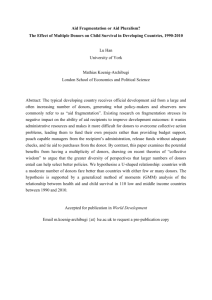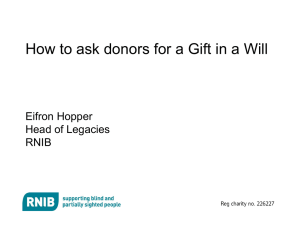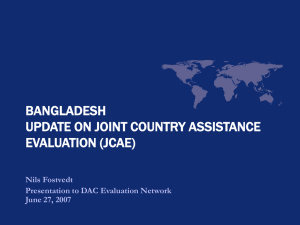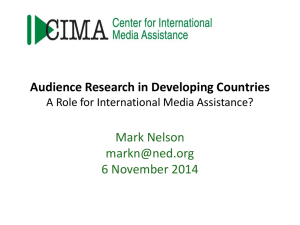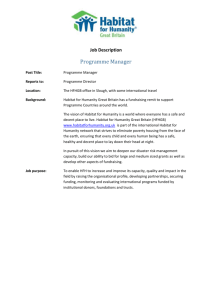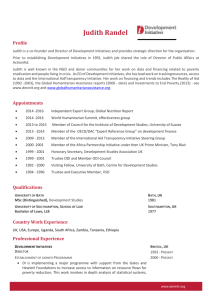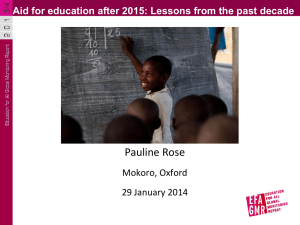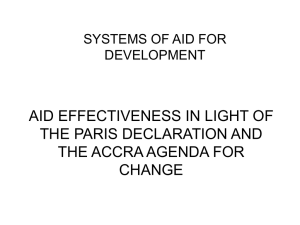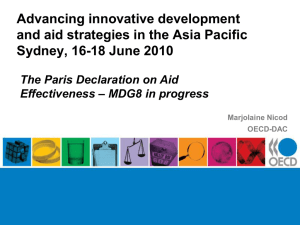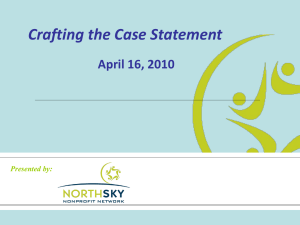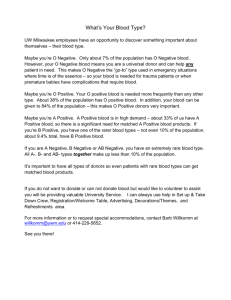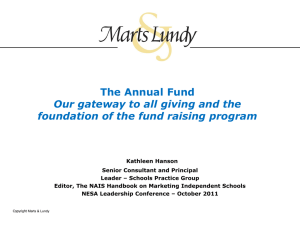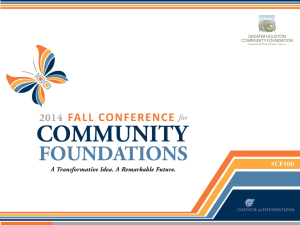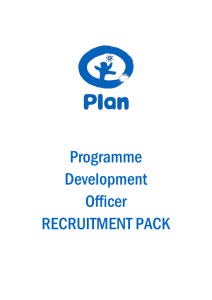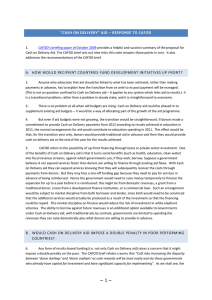Intro CSC
advertisement
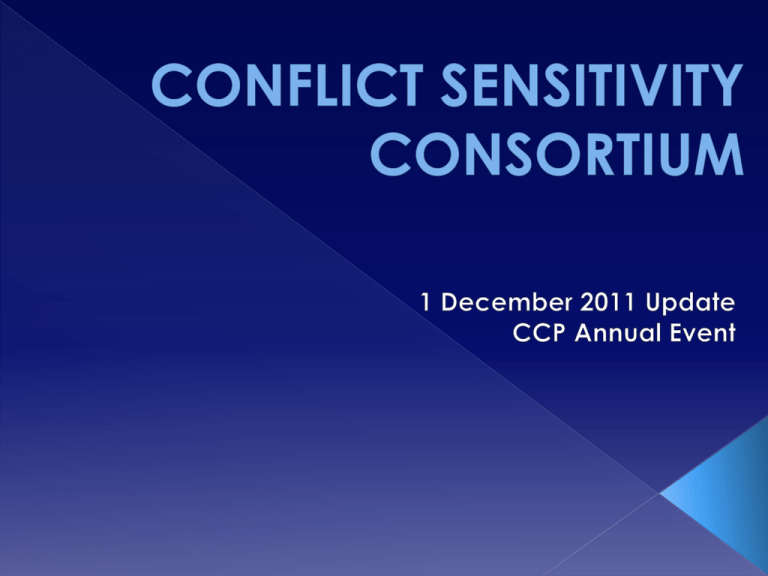
A conflict-sensitive approach involves: Gaining a sound understanding of the twoway interaction between activities and context; Acting to minimize negative impacts and maximize positive impacts of interventions on conflict; Within an organisation’s given priorities and mandate. Key elements: Carry out a conflict analysis and update it regularly; Link the conflict analysis with the programming cycle of your intervention (design, implementation, monitoring and evaluation); CS integration at the institutional level. 4 country consortia: Kenya, Sierra Leone, Sri Lanka, UK 35 member agencies: CARE, Save the Children, ActionAid, CAFOD, World Vision, Plan, International Alert, Saferworld, … Lead agency: Care International UK Duration: July 2008 to March 2012 Funded by DFID Maralal May 2011 – children; Maralal May 2011 – community meeting; Sri Lanka annual event February 2011 Project Goal: Greater impact of development and humanitarian assistance through improved and more widespread mainstreaming of conflict sensitive approaches. Project Objectives: Shared understanding of CSA across a network of international and local development, humanitarian and peace building organisations; Lessons and recommendations for mainstreaming effective CSA across a range of contexts and sectors disseminated to policy-makers, donors and practitioners; Strengthened expertise and capacity amongst member organisations and civil society partners to institutionalise and implement CSA, at HQ and local levels. Shared definition of conflict sensitivity Assessing and building institutional capacity: selfassessment, change objectives, peer support and progress monitoring by 35 agencies in 4 country consortia Piloting innovative approaches Capturing and disseminating lessons learnt Influencing the policies and practices of peer agencies, partners, donors and governments KENYA SIERRA LEONE CAFOD Maralal and CARE Kibera pilot projects CS sensitisation and capacity-building of National Cohesion and Integration Commission (IDP resettlement policy) Work on CS media reporting for ICC trials and campaigning for 2012 elections CARE Conservation Agriculture and Red Cross Community Animation and Peace Support pilot projects CS and aid effectiveness: dialogue with peer NGOs, donors and government and engagement in International Dialogue in Peacebuilding and Statebuilding CS and extractive industries SRI LANKA UNITED KINGDOM Peace and Community Action pilot project Do No Harm and CS guidance in local languages Donor policy review and in-depth case studies CS in partnership strategies CS integration in strategies and policies at headquarters level Outreach and influencing: Comic Relief, DFID, contribution to UK civil society preparations for Busan CS in Emergencies: research, launch of paper in London, Geneva, Freetown, Islamabad, implementation of recommendations and influencing of the humanitarian sector Conflict analysis: fundamental but key challenge: link to intervention; needs to be regularly updated (including through light-touch continuous context monitoring); can be integrated in broader assessment processes (ex: ActionAid PVA) Importance of flexibility and capacity to adjust implementation plans Relevance of CS for emergency responses Relevance of CS: not just at project and programme level but for all departments in an organisation Importance of senior management buy-in How to integrate CS into…. an intervention o Project management cycle (analysis, design, implementation, monitoring and evaluation) o Emergency response How to integrate CS into…. an organisation o o o o Organisational strategies and policies Human resources, staff awareness and capacity Programming frameworks Finance, procurement, … Working with others: beneficiaries, partners, government, donors Business case: why should CS be a priority for donors? Benchmarks for donors: how to enable and promote conflict-sensitive approaches
